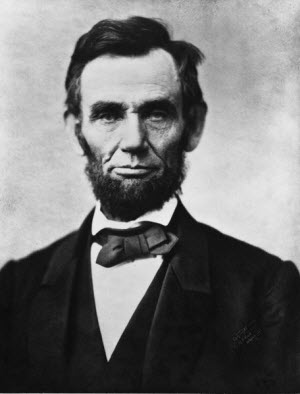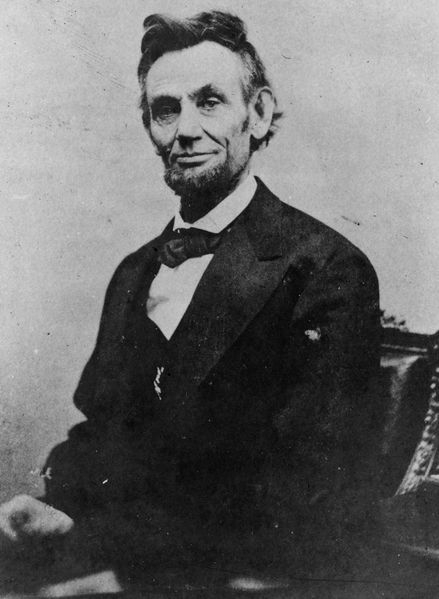The chief interest of the Illinois campaign of 1843 lay in the race for Congress in the Capital district, which was between Hardin--fiery, eloquent, and impetuous Democrat--and Lincoln--plain, practical, and ennobled Whig. The world knows the result. Lincoln was elected.
It is not so much his election as the manner in which he secured his nomination with which we have to deal. Before that ever-memorable spring Lincoln vacillated between the courts of Springfield, rated as a plain, honest, logical Whig, with no ambition higher politically than to occupy some good home office.
Late in the fall of 1842 his name began to be mentioned in connection with Congressional aspirations, which fact greatly annoyed the leaders of his political party, who had already selected as the Whig candidate E. D. Baker, afterward the gallant Colonel who fell so bravely and died such an honorable death on the battlefield of Ball's Bluff.
Despite all efforts of his opponents within his party, the name of the "gaunt rail-splitter" was hailed with acclaim by the masses, to whom he had endeared himself by his witticisms, honest tongue, and quaint philosophy when on the stump, or mingling with them in their homes.
The convention, which met in early spring, in the city of Springfield, was to be composed of the usual number of delegates. The contest for the nomination was spirited and exciting.
A few weeks before the meeting of the convention the fact was found by the leaders that the advantage lay with Lincoln, and that unless they pulled some very fine wires nothing could save Baker.
They attempted to play the game that has so often won, by "convincing" delegates under instructions for Lincoln to violate them, and vote for Baker. They had apparently succeeded.
"The best laid plans of mice and men gang aft agley." So it was in this case. Two days before the convention Lincoln received an intimation of this, and, late at night, wrote the following letter.
The letter was addressed to Martin Morris, who resided at Petersburg, an intimate friend of his, and by him circulated among those who were instructed for him at the county convention.
It had the desired effect. The convention met, the scheme of the conspirators miscarried, Lincoln was nominated, made a vigorous canvass, and was triumphantly elected, thus paving the way for his more extended and brilliant conquests.
This letter, Lincoln had often told his friends, gave him ultimately the Chief Magistracy of the nation. He has also said, that, had he been beaten before the convention, he would have been forever obscured. The following is a verbatim copy of the epistle:
"April 14, 1843.
"Friend Morris: I have heard it intimated that Baker is trying to get you or Miles, or both of you, to violate the instructions of the meeting that appointed you, and to go for him. I have insisted, and still insist, that this cannot be true.
"Sure Baker would not do the like. As well might Hardin ask me to vote for him in the convention.
"Again, it is said there will be an attempt to get instructions in your county requiring you to go for Baker. This is all wrong. Upon the same rule, why might I not fly from the decision against me at Sangamon and get up instructions to their delegates to go for me. There are at least 1,200 Whigs in the county that took no part, and yet I would as soon stick my head in the fire as attempt it.
"Besides, if any one should get the nomination by such extraordinary means, all harmony in the district would inevitably be lost. Honest Whigs (and very nearly all of them are honest) would not quietly abide such enormities.
"I repeat, such an attempt on Baker's part cannot be true. Write me at Springfield how the matter is. Don't show or speak of this letter.
Abraham Lincoln | Events | People | Abraham Lincoln Quotes |
Quotations About Abraham Lincoln | Abraham Lincoln Photo Gallery | Abraham Lincoln Timeline |
Privacy Policy | About Us | Site News | Site Map |
Anecdotes and Stories About Abraham Lincoln


